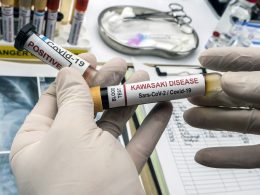Healthy, radiant skin is something many people strive for, and while topical treatments and skincare routines are important, the food we eat plays a crucial role in the health and appearance of our skin. Our skin is the largest organ in our body, and just like our other organs, it requires specific nutrients to function properly. In this article, we’ll explore the connection between nutrition and skin health and provide tips on how to nourish your skin from the inside out.
The Link between Nutrition and Skin Health Our skin is made up of multiple layers, and each layer performs a specific function. The outermost layer, the epidermis, acts as a barrier, protecting the body from external threats such as bacteria, viruses, and pollution. The dermis layer contains collagen, which gives our skin its elasticity, and the subcutaneous tissue provides insulation and cushioning. All three layers work together to keep our skin healthy and strong.
However, various factors can damage our skin, including UV radiation, pollution, stress, and a poor diet. When we eat a diet high in processed foods, sugar, and unhealthy fats, it can cause inflammation in the body, leading to a breakdown of collagen and elastin in our skin, resulting in wrinkles, fine lines, and sagging skin.
On the other hand, a diet rich in antioxidants, healthy fats, and vitamins can help protect our skin from damage and keep it looking youthful and healthy. For example, antioxidants found in fruits and vegetables help neutralize free radicals, which can cause cellular damage and premature aging.
Foods that Promote Healthy Skin To keep your skin healthy, it’s essential to eat a well-balanced diet rich in the following nutrients:
- Omega-3 fatty acids: These healthy fats are found in fatty fish, nuts, and seeds and help keep our skin moisturized and supple.
- Vitamins A, C, and E: These vitamins act as antioxidants, protecting our skin from damage caused by UV rays and pollution. Vitamin A can be found in sweet potatoes, carrots, and leafy greens, while citrus fruits, strawberries, and bell peppers are excellent sources of vitamin C. Vitamin E can be found in nuts and seeds.
- Zinc: This mineral is essential for the production of collagen and helps promote skin healing. Zinc can be found in shellfish, nuts, and legumes.
- Water: Staying hydrated is crucial for maintaining healthy skin. Drinking enough water helps keep our skin moisturized and flushes out toxins.
Conclusion While topical skincare products can help improve the appearance of our skin, the food we eat plays a vital role in the health and vitality of our skin. By incorporating nutrient-rich foods into our diet, we can nourish our skin from the inside out, protecting it from damage and keeping it looking youthful and radiant.
As we strive to maintain healthy and glowing skin, it’s important to remember that a healthy diet is just one aspect of a holistic approach to skincare. Regular exercise, stress management, and good sleep hygiene all play a role in our overall health and the appearance of our skin. By taking care of our bodies from the inside out, we can achieve healthy, glowing skin that radiates vitality and wellness.












